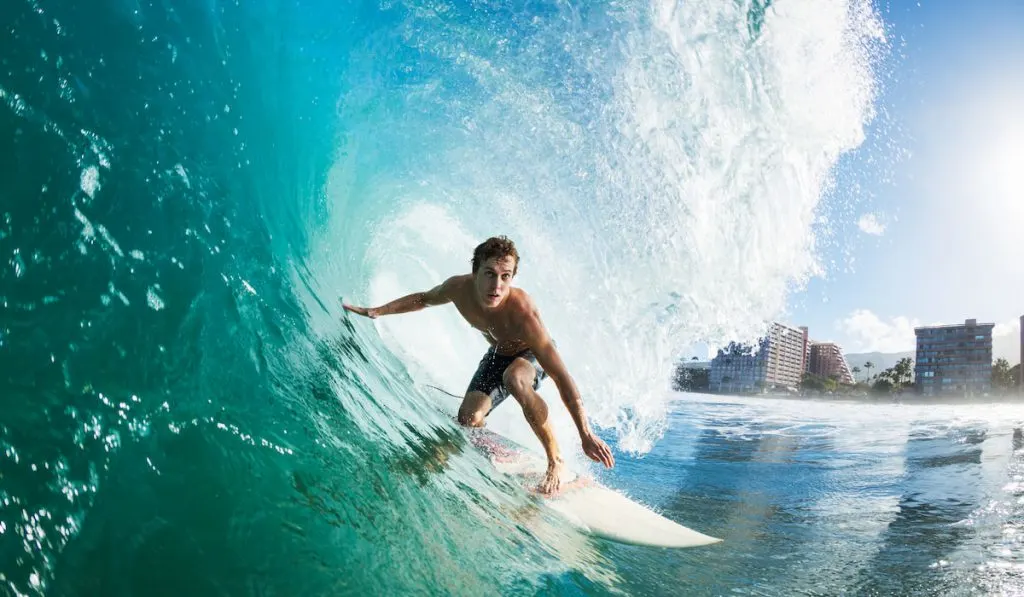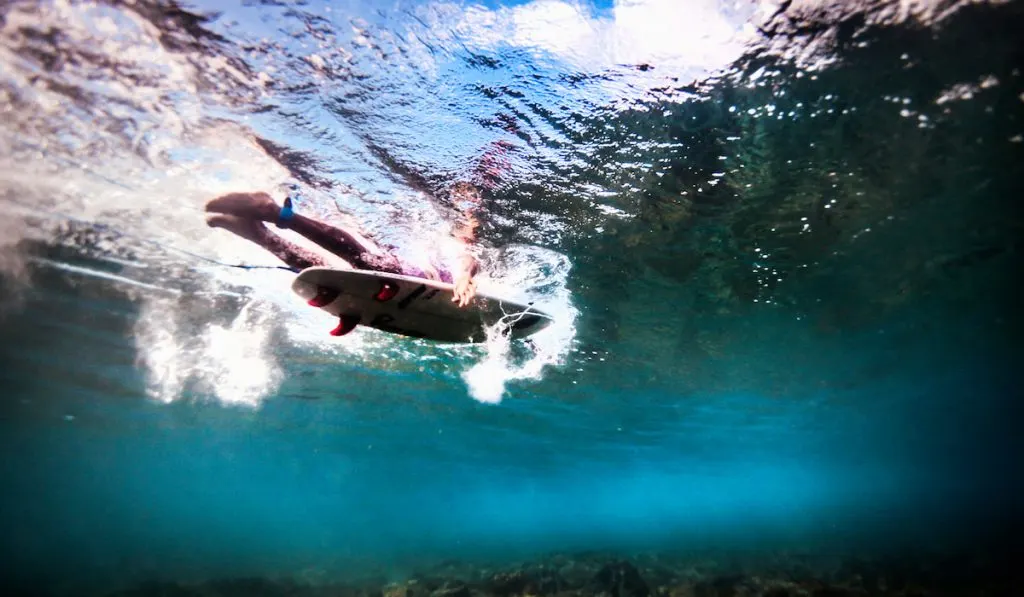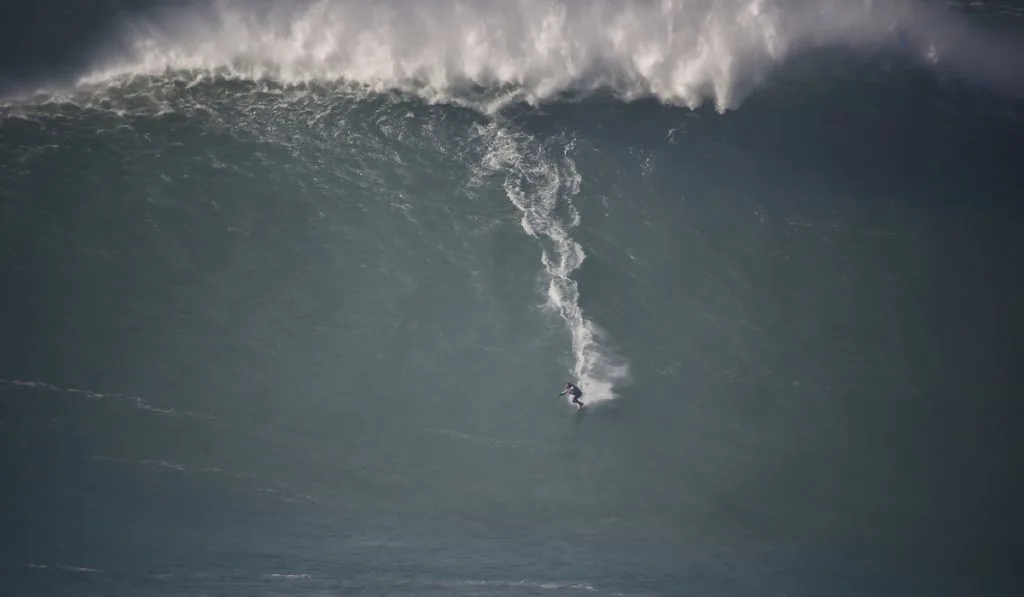While surfing can be a whole lot of fun, it comes with numerous life-threatening risks. One of the many risks that come with surfing includes drowning.
Can surfers drown?
Surfers do drown for various reasons. In some cases, surfers get separated or detached from their surfboards, and if they cannot swim, they may end up drowning. In other cases, surfers collide heavily with each other and end up unconscious inside the water.

Drifting above water or riding the waves can be incredibly fun, but the activity also comes with its own potential for danger.
But how common is drowning and what contributes to the risk? In this article, we’ll explore some of the hazards that come with surfing.
Can Surfers Drown?
Even with several safety improvements like inflation devices and leashes, accidents still happen, and surfers can drown.
People who are new to surfing are mostly afraid of drowning while they learn to surf. Truly, the possibilities of drowning are high, and anyone can fall victim.
The waves of the ocean are unpredictable, and this increases the possibility of drowning. When surfing, ensure you have a friend on standby for if an emergency occurs.
Although drowning is a rarity among the surfer community, some notable deaths have resulted from it.
One of such deaths was Mark Foo, a well-known surfer from Hawaii. Mark was known for surfing big waves.
One day he went to California looking to surf Mavericks, a big wave located close to Santa Cruz.
For some reason, Mark Foo wiped out and ran out of breath before he reached the surface. This happened to an experienced and well-respected surfer.
Another case was that of Jay Moriarity. Jay was also a big wave surfer who happened to drown while he was free diving. A movie titled Chasing Mavericks was made based on his life.
Some surfers suffer heart attacks while surfing, while some hit their heads against rocks and suffer from concussions.
Either of these scenarios might end up with the victim drowning, especially if they lose consciousness or are unable to call for help.
Several other events can result in drowning while surfing. So, to be on the safe side, you should attach yourself to a floatation device like your surfboard.

How Many Surfers Drown Each Year?
It is estimated that 10 people drown every year while surfing.
The number of accidental drowning on surf beaches is put at around 2.38 surfers for every 100,000 surfers. These figures are distinct to visitors and tourists.
The drowning rate of surf beach locals are lower and averages 0.28 surfers for every 100,000 surfers.
In Australia, a popular destination for world surfing events, around 21 drowning-related deaths occur yearly. Most of the reported deaths are caused by rip currents.
The relatively low body count among surfers can be attributed to several factors.
These factors include improved water safety and the use of inflatable life vests. These measures can prevent surfers from drowning by limiting how long they remain underwater.
There are also Jet Ski safety teams and on-land spotters. These people are positioned to ensure a surfer is immediately rescued from any impending danger when they wipe out.
5 Surfing Dangers That Can Cause Drowning
1. Big Waves
Big waves are the centerpiece on any surfing beach, yet they are a major hazard to any surfer.
Big waves like the XXL wave, for instance, have massive amounts of energy. Due to their enormous size and force, duck diving is practically impossible.

When this huge wave breaks, it could actually break one’s bones. It can also pin a surfer underwater for long periods and sometimes slam them on the ocean floor, which can lead to drowning.
2. Rip Currents, Undertows, and Rip Tides
Rip tides are referred to as silent killers for a good reason. Every year, people are found dead after being trapped under them.
These ocean currents do not pull surfers underwater and are not a powerful as big waves. All they do is drain the energy of a surfer till they get exhausted and drown.
The trick to surviving these currents is to let them drag you into the ocean. Once you stop being moved out-the-back, try swimming sideways to where the waves break, and you should be safe.
If you get caught in any of these currents, do not panic and remain calm, conserve your energy, and request help if the need arises.
3. Loss of Consciousness
When surfing in shallow waters, there is a high chance of hitting your head on the reef or rock. This can cause you to lose consciousness and eventually drown.
You may also become unconscious when you hit your head on your board.
4. The Leash
The leash is meant to help surfers stay on their boards, and many beginner surfers depend on it quite a lot.

But the leash can cause problems for a surfer. If you get caught by the leash while underwater, the chances of you reaching the surface before drowning are quite slim.
5. Cardiac Arrest and Drug Overdose
Surfing is a good way to work out and can be quite intense. Surfers can drown from cardiac arrest caused by overexertion.
As surfers get older, their hearts are unable to handle the physical strain from surfing. So, sometimes, their heart gives out mid-surf.
Another cause of drowning is drug overdose. There have been reports of surfers who drowned with high levels of crystal meth in their blood.
Drug overdose can result in poor decision making and can also cause heart failure. Trying to surf a big wave when high on drugs is a bad decision.
Final Take
While the incidence is quite rare, surfers do drown.
Generally, surfers are strong swimmers, and many safety measures are instituted for them. But accidents can happen, so it is important to take as many safety precautions as possible.
Resources
- https://surfing-waves.com/surfing-dangers.htm
- https://www.quora.com/Do-surfers-ever-drown
- https://www.reference.com/world-view/many-people-die-surfing-year-bd954e39dba9925e
- https://www.surfertoday.com/surfing/the-most-common-surfing-dangers-and-hazards
- https://wavelengthmag.com/how-dangerous-is-surfing/
